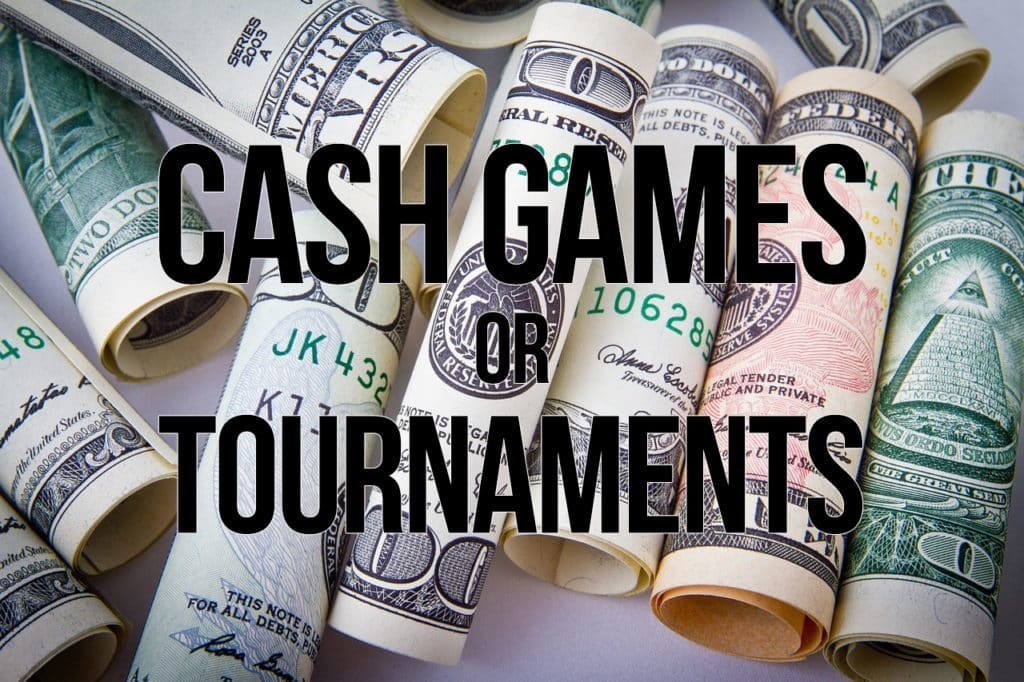Daily Fantasy Sports: Cash Games vs Tournaments and how to slay each
Whether you play on DraftKings or Fanduel, there are two different formats to choose from. The two are cash games and tournaments. Each game is very different and requires different strategies to be successful. In this article I will do my best to educate you on each type of contest and give you the advantage of understanding. I see many players deposit money and jump in without having a clue what they are doing. I see these players because I actively search them out. They are easy pickings and I enjoy taking their money. In time, as you play daily fantasy sports (DFS) and learn the methods that make you successful, you will be able to spot the suckers as well. But until then, let’s carry on as my ramblings have gone on far enough!
Cash Games
Cash games should be the cornerstone to maintain your DFS bankroll. Cash games pay out the top 50% of the field. Everybody that finishes in the top 50% gets paid the same amount, double your buy-in minus the amount the site takes for hosting the contest. For instance, if you enter a $1 50/50 contest with 100 players and finish 50th, you win $1.80. The .20 cent difference is taken by DraftKings or Fanduel.
Another cash game is a Double Up. This contest sounds the same as a 50/50, but it differs and is harder to cash. This contest pays double the money you pay to enter with no rake taken out. However, the site still must make money, so less than half win. Let’s say you join a $2 dollar Double Up. Instead of 100 players, this contest had 112. If you finish in the top 50, you win $4. See how it differs? It is harder to cash as you need to beat 62 others instead of 50 in the 50/50. It took me way too long to figure this out.
Building your line-up for cash games is about finding players with the highest floor possible. What I mean by floor is the lowest possible score a player can get night in and night out. The goal is to take as little risk as possible when constructing lineups. Inconsistent players, players from teams that play at a low pace, or any player might be hurt have no place in your cash lineup. I target teams who play up in pace. Extra possessions mean extra chance at points. A sound strategy is to target a game where neither team plays defense and the game has a high over/under. Up and down the floor with shot after shot can mean DFS gold. Stay clear of the slow pace games with a low over/under for cash games.

Slow pace means less chance for points, rebounds, steals, and blocks.
Tournaments
Tournaments can be fool’s gold. Sure, the payouts are higher and all you need to do is hit it once and you could be $50-100 thousand dollars richer. Tournaments are attractive and glamorous, just like Las Vegas. There is a reason you can wipe your ass with gold toilet paper at the casinos. Casinos are set-up to make money and so are high dollar, high entry tournaments in DFS.
The cash lines are much smaller in tournaments and harder to achieve. The reason for joining a tournament shouldn’t be to cash, it should be to win. Tournament payouts are top heavy, meaning to make significant money you must finish in the top 1-5%. In cash games we are looking for high floors. In tournaments we want to be riskier and search out the players with high ceilings.
What I mean by high ceiling is the most points you can expect from a certain player. These players include high price superstars and mid-price to low-price “boom or bust” players. These players you don’t know what the hell to expect from them. One night they may go off for 50+ points and the next game they score less than 10 points. These players have a low floor, so they are not safe for cash games. However, if you play them in a tournament and they go off for a big score, you could be in business. See you paid a cheap price for this player, which allowed you to roster more consistent, higher price players. That equation is the key to winning the big money. You need to have the “boom or bust” player at a low ownership in the tournament and putting up a big score.
Low ownership is all about finding that diamond in the rough. It could be a player who had a horrible game or has a non-favorable match-up. The herd, all the other players, will be off this player and looking elsewhere. This is the best time to play that player and hope he gets you a big score. If you don’t take that chance, you may double your money finishing in the payout line. But, this payout is very risky as you could have had a much better chance cashing in a cash game. When I play a tournament, my attitude is I am going to win the damn thing or have a bust for a lineup and lose hence the “boom or bust” mentality. If I finish somewhere in the payout, it’s a bonus for me.
Conclusion
I hope if you were on the edge of trying DFS, you are now gong to jump in and give the ol’ college try. Tell me about your experiences and please ask me questions at r.dicker@slickstermagazine.com. Also, if you have experiences that have helped you please share them with me.
My next article will dig deeper into cash games to explain the different games available, strategies to maximize potential of winning, and tips to avoid entering the wrong contests.

